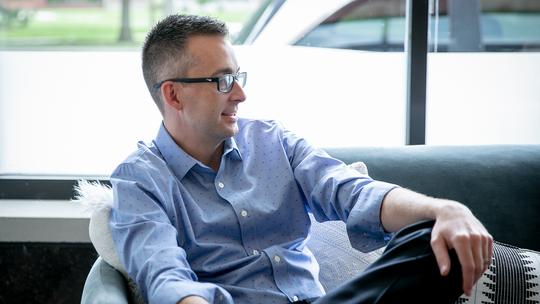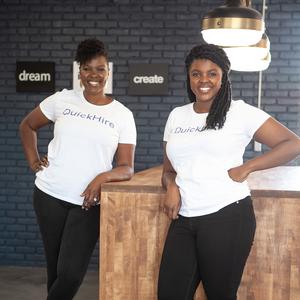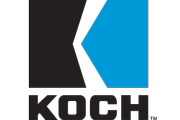In 1927, Fred Koch developed a thermal cracking process he believed could greatly boost gasoline production and decrease costs for independent oil refiners.
While that was the genesis of Koch Industries Inc., there was still a hurdle.
“Before he could sell his new process, he had to prove it worked,” his son and company CEO, Charles Koch, wrote in the company newsletter earlier this year.
Fred Koch convinced a refiner to try the process and did prove that it worked, creating the launching pad for what is today the largest privately held company in the country.
It’s a concept, Charles Koch wrote, alive and well today in what the company calls Koch Labs — a kind of entrepreneurial accelerator for Koch companies and companies it invests in.
And, while it’s a concept that’s been alive and well at Koch throughout its history, Koch Labs has become a formalized engine for driving new ideas and processes at the company.
“Koch Labs is an application of the Republic of Science that calls for the sharing of knowledge, which is essential for scientific and social innovation and progress,” Koch wrote. “It is why we try to continually build knowledge networks of all kinds within the company and throughout the world.”
Getting in the sand
Steve Feilmeier, CEO of Koch Investments Group, says Koch Labs began as a specific capability out of Koch Disruptive Technologies — part of that investments group — in 2017.
“Essentially, this capability allows us to provide our external partners with support beyond capital investment by connecting them to Koch’s global scale as a potential customer, capability provider, technology validator, or any other aspect that might create mutual benefit for both parties,” Feilmeier told the WBJ. “Koch’s scale and breadth of operations can create significant value beyond just writing a check.”
The concept has had ample opportunity to work just through KDT, which has been a big part of the $30 billion that Koch has made in technology investments in recent years.
Feilmeier says Byron Knight, of KDT, has been instrumental in the establishment of Koch Labs, along with a team that includes Bill Bender, Navin Maharaj and Annant Patel.
Knight says Koch Labs often gets started quickly with companies that Koch eyes for investment and sometimes even before an investment is finalized.
"Ultimately, the scope of the Koch Labs engagements is determined by the portfolio company’s goals and priorities," he says. "We strive to support each company in its unique growth mission and overall strategy, so we work closely to ensure they have the resources they need, when they need them as best we can."
Knight says examples of Koch Labs at work recently include helping Percepto experiment with autonomous inspections at a Koch fertilizer plant, leveraging Desktop Metal's 3D printing technology at Koch companies John Zink Hamworthy Combustion and Georgia-Pacific, and driving a company-wide upgrade of cloud networking infrastructure with Alkira.
Feilmeier says Koch Labs has spread beyond KDT to other parts of the company, including other investment groups within Koch, and employees throughout the company are encouraged to bring ideas or processes they have to the table.
Key to Koch Labs, he says, are its subject matter experts, who are sent throughout the company and in the startup world to identify and then help nurture game-changing ideas.
“(They) can serve a variety of purposes, from helping Koch evaluate a potential technology, providing guidance and knowledge to one of our partners, or even serving as a doorway for an entrepreneur to test and refine a solution to a problem or opportunity Koch is actively working to address," Feilmeier says.
"Thinking of Koch as a laboratory opens the door to one of the largest metaphorical sandboxes on the planet,” he added. “Koch’s operations employ more than 120,000 people across 70 countries, so if you have an idea or technology that’s solving a problem, we’re probably experiencing that problem somewhere.”
A bottom-up approach
Josh Oeding, president and CEO of entrepreneurial organization NXTUS, says Koch Labs holds a lesson for outside entrepreneurs.
As a former Koch employee, Oeding says entrepreneurship is woven into everything the company does.

"Entrepreneurial principles are deeply engrained in the culture of Koch," Oeding says. "As companies age and grow, it is very difficult to maintain that 'Day 1 mentality' that Amazon has made famous. By perpetually challenging the status quo, being willing to make significant changes, and working to stay true to its vision and deliver real value for its customers, Koch works to keep key elements of an entrepreneur’s mindset at its core, despite its size and long history."
Koch's history is an inspiration at NXTUS, he says, and a lesson for any small startup in Wichita of the power of thinking big.
"The fact that Koch has been built in Wichita and continues to experiment with new capabilities like Koch Labs delivers that message loud and clear," Oeding says. "You can build big, successful companies here, and never stop innovating."
Feilmeier says believes the biggest lesson from Koch Labs that outside entrepreneurs can learn is its example of one of the core business philosophies at the company: Creating mutual benefit.
"That's what I would say is the biggest lesson, and I see as fundamental to business as a whole," he says. "Focus on creating value for others, and success will follow."
And, says Feilmeier, there should be plenty of more good ideas to come grown out of Koch Labs.
“We think the process gets better as we continue to encourage our employees to think as entrepreneurs and embrace transformation,” he says. “The key to this approach is in activating knowledge in one area to interact with knowledge in another and create something that’s mutually beneficial to both sides.
"That type of engagement is most valuable when it’s a bottom-up approach and being driven by those who are doing the work and owning the knowledge, not as a top-down mandate from leadership.”






